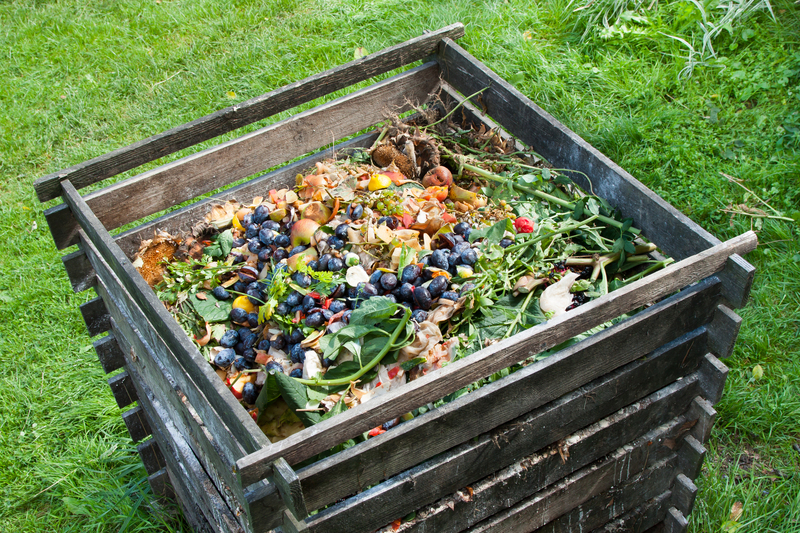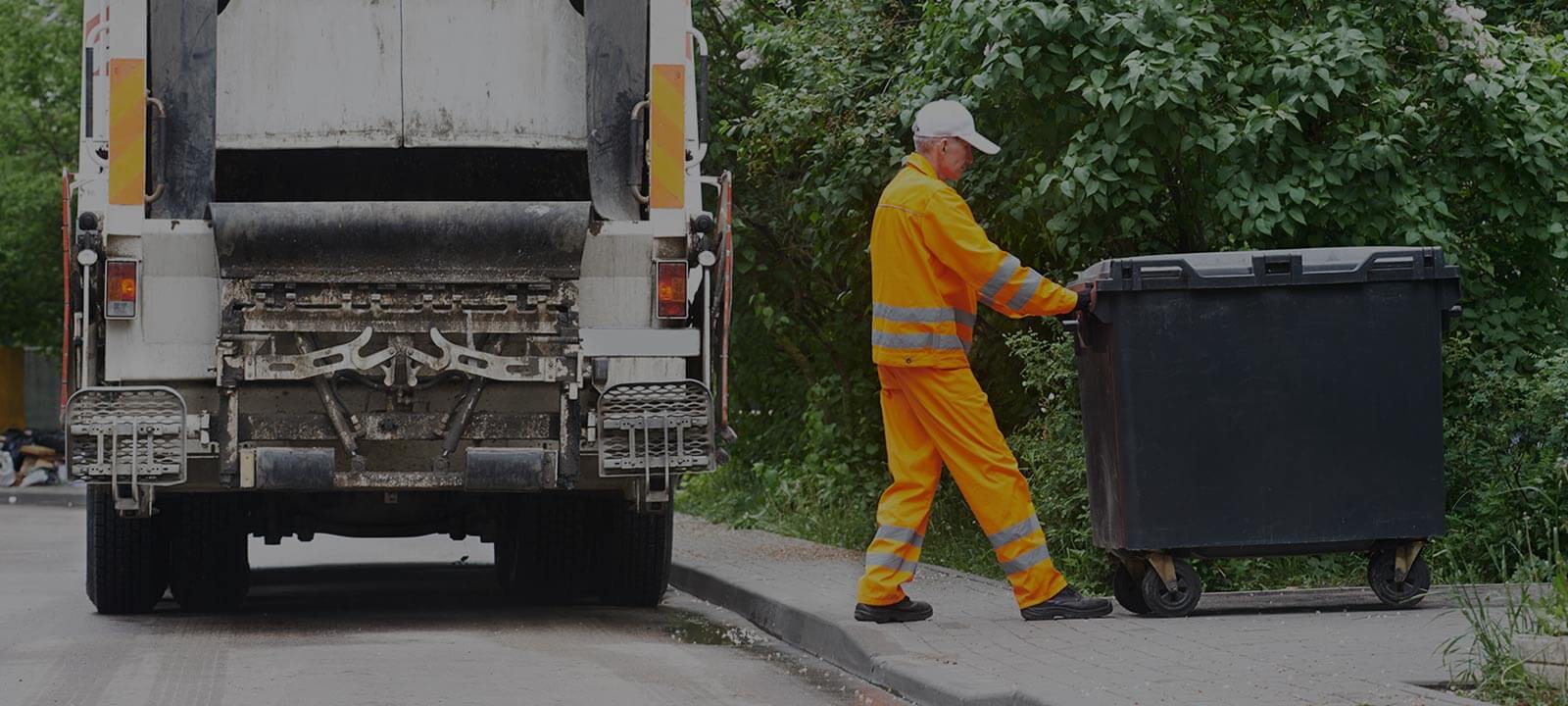Progressive Garbage Management Approaches
Posted on 15/09/2025
In today's rapidly urbanizing world, the management of waste has become one of the most pressing environmental and social issues. Progressive garbage management approaches are vital in tackling the growing waste problem in a sustainable and effective manner. These methods not only help in reducing the environmental footprint but also promote resource recovery, create job opportunities, and foster healthier communities.
1. Waste Minimization
Waste minimization is a forefront strategy in progressive garbage management. It involves techniques and practices aimed at reducing the amount of waste generated at the source itself. This can be achieved through:
- Product Design: Designing products that have a longer lifespan, are reusable, and require fewer resources during manufacturing.
- Packaging Reduction: Using minimal packaging and opting for eco-friendly materials that are biodegradable or recyclable.
- Consumer Behavior: Educating consumers on how to avoid unnecessary purchases and encouraging them to choose products with minimal environmental impact.

2. Enhanced Recycling Programs
Recycling is a cornerstone of progressive garbage management. Modern recycling programs focus on not just increasing the volume of waste diverted from landfills but also on improving the efficiency and scope of recycling processes. Key tactics include:
- Single-Stream Recycling: Simplifying the recycling process by allowing all recyclables to be placed in a single bin, which can increase participation rates.
- Advanced Sorting Technologies: Utilizing optical sorters, magnets, and air classifiers to sort recyclables more accurately and efficiently.
- E-waste Recycling: Establishing specialized facilities for the recycling of electronic waste, which often contains hazardous materials and valuable metals.
3. Composting and Organic Waste Management
Organic waste constitutes a significant portion of the total waste generated, especially in urban areas. Composting is an effective way to manage this waste stream. Progressive approaches in this area include:
- Community Composting Programs: Localized composting initiatives allow communities to engage in composting, reducing the need for transportation and centralized processing facilities.
- Anaerobic Digestion: This process converts organic waste into biogas and biofertilizers, providing a source of renewable energy and nutrient-rich soil amendments.
- Food Waste Reduction Campaigns: Efforts to minimize food waste through education, policy changes, and incentives for reducing waste in the hospitality and retail sectors.
4. Waste-to-Energy Technologies
Waste-to-energy (WTE) technologies are gaining traction as part of comprehensive waste management strategies. These technologies convert various types of waste into usable forms of energy, such as electricity, heat, or fuel. Notable WTE approaches include:
- Incineration with Energy Recovery: Modern incineration plants are designed to recover energy from the combustion process, significantly reducing the volume of waste and generating electricity or heat.
- Gasification: This advanced process converts organic and some inorganic materials into syngas, which can be used to produce electricity, fuels, or chemicals.
- Pyrolysis: A thermal decomposition process that breaks down waste materials at high temperatures in the absence of oxygen to produce oil, gas, and char, all of which have potential uses as energy sources or industrial materials.
5. Circular Economy Principles
The circular economy is an innovative approach to waste management that aims to close the loop of product life cycles. It focuses on keeping resources in use for as long as possible, extracting the maximum value from them while in use, and recovering and regenerating products and materials at the end of each service life. Strategies to promote a circular economy include:
- Product-as-a-Service (PaaS): Shifting from ownership to access, where consumers lease or rent products instead of purchasing them outright, ensuring products are returned for reuse, refurbishment, or recycling.
- Extended Producer Responsibility (EPR): Policies that hold manufacturers accountable for the entire lifecycle of their products, including take-back, recycling, and final disposal.
- Resource Recovery Parks: Clustered facilities that focus on reclaiming usable materials from waste, thereby reducing landfill dependency and fostering industrial symbiosis.
6. Policy and Regulatory Frameworks
Governments play a crucial role in supporting progressive garbage management through policy and regulatory frameworks that encourage or mandate responsible waste handling practices. Effective measures include:
- Landfill Taxes: Financial incentives such as taxes on landfilling can encourage waste diversion and the adoption of more sustainable waste management practices.
- Zero Waste Goals: Setting ambitious targets for zero waste cities and municipalities can drive innovation and community participation in waste reduction initiatives.
- Bans on Single-Use Plastics: Legislation to phase out or ban single-use plastics can significantly reduce plastic waste and promote the use of sustainable alternatives.

7. Community Engagement and Education
Public awareness and community involvement are pivotal in ensuring the success of progressive garbage management approaches. Engaging communities can lead to more sustainable behaviors and support for waste management initiatives. Strategies for effective community engagement include:
- Educational Campaigns: Informative initiatives that explain the importance of waste reduction, recycling, and proper disposal methods.
- Incentive Programs: Rewarding individuals and businesses for positive waste management practices, such as through rebates for composting units or discounts for using reusable packaging.
- Volunteer Programs: Encouraging community members to participate in clean-up drives, recycling programs, and other waste management activities.
Conclusion
Progressive garbage management approaches present a multifaceted solution to the growing waste challenge. By adopting strategies such as waste minimization, enhanced recycling programs, composting, waste-to-energy technologies, circular economy principles, supportive policies, and robust community engagement, we can create a sustainable and efficient waste management system. These innovations not only mitigate the environmental impact of waste but also contribute to economic growth and improve the quality of life for communities around the world.
Latest Posts
Reusing for Resource Conservation
Industry applauds government's dedication to improving e-waste recycling practices






